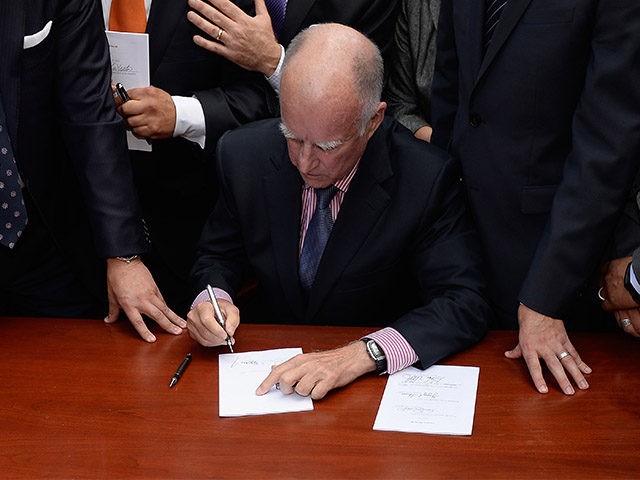California teachers’ unions, school administrator associations, school boards, and the mostly non-profit California Charter Schools Association are joining together in a rare moment as they urge Gov. Jerry Brown to sign a bill that would ban for-profit charter schools in the state.
Assembly Bill 406 would “prohibit a petitioner that submits a charter petition for the establishment of a charter school … from operating as, or being operated by, as defined, a for-profit corporation, a for-profit educational management organization, or a for-profit charter management organization.”
The bill appears to target the nine non-profit California Virtual Academies (CAVA) and their affiliates, known as Insight Schools of California. The online schools have a relationship with K12 Inc., a national charter school company that is publicly traded and boasts an annual revenue of some $1 billion.
The measure, however, may not work as intended, reports EdSource.
Michael Kraft, K12 Inc,’s senior vice president for communications, said the company would not have to change its operations to comply with the current bill.
According to the report, Kraft said that the company’s relationship with CAVA schools “has evolved over years to the point where they are independently run schools and the company does not believe that the bill would change how it currently delivers products and services.”
Prior to her election to the U.S. Senate, then-Attorney General Kamala Harris (D-CA) accused K12 of “inflated student attendance, false marketing and improper financing arrangements,” reports EdSource.
In 2017, though K12 denied wrongdoing, the state fined the company $2 million following a CAVA audit that discovered insufficient documentation of student attendance data.
There is also some concern Brown will not sign the legislation. Three years ago, the governor vetoed a similar bill, stating, “I don’t believe the case has been made to eliminate for-profit charter schools in California.”
Brown – who, as mayor of Oakland, once launched two charter schools – has been critical of the current bill’s language since there are non-profit charter schools that contract with for-profit vendors – a situation that could cause difficulties for the non-profits.
When he vetoed the earlier bill, Brown said the “ambiguous terms used in this bill could be interpreted to restrict the ability of nonprofit charter schools to continue using for-profit vendors.”
The state Senate Education Committee analysis suggested clarification of the bill as well.
“In which instances would nonprofit charter schools be determined to be ‘operated by’ for-profit corporations?” the analysis asked.
Additionally, only some half-dozen for-profit corporations actually run charter schools in California.
EdSource reports:
A legislative analysis of AB 406 found 34 charter schools that either are owned by for-profit companies or are nonprofit charter schools heavily tied to for-profit companies. That number is about 3 percent of the more than 1,200 charter schools in the state. They enroll an estimated 25,000 of the state’s 630,000 charter school students, the analysis said.
Charter schools are largely publicly funded schools that are privately operated. Underlying the controversy are the notions that for-profit companies are concerned only about profits and not student education – a point the California Teachers Association has pushed – and that, because they are publicly funded, charter schools should follow all the same rules as public schools.
Brown must decide whether to sign or veto the bill by October 15. If approved, AB 406 would become law January 1, 2019.

COMMENTS
Please let us know if you're having issues with commenting.